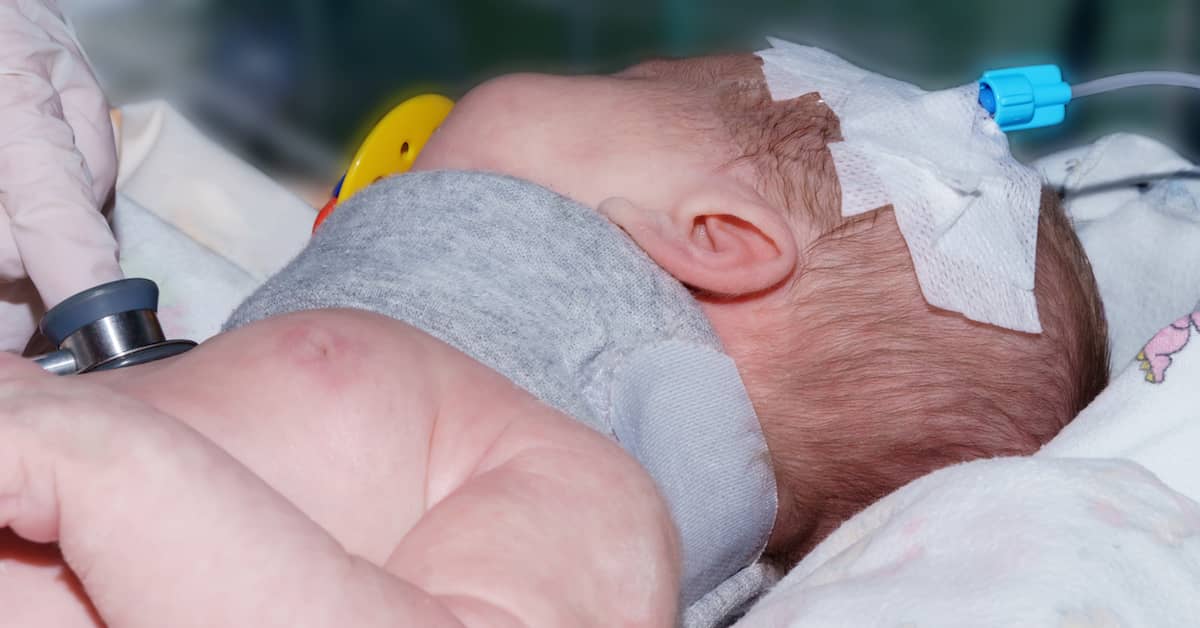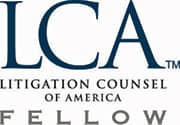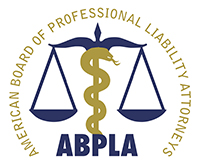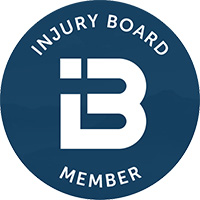
What Are the Effects of a Traumatic Birth on a Baby?
Welcoming a newborn is one of life’s most joyous occasions. Sadly, this joy can quickly be overshadowed by anxiety and distress when negligent medical professionals put your infant at risk of a traumatic birth. In far too many cases, this type of negligence results in catastrophic injury to the newborn baby.
When a traumatic birth is the result of medical malpractice or negligence, it can be difficult to know where to turn for help. Feeling betrayed by a medical professional is a shocking experience that often leaves victims feeling isolated and alone. But you are not alone. The Rhode Island birth injury lawyers at Mandell, Boisclair & Mandell are here to help you seek justice and compensation. Call our Providence office at (401) 273-8330 to schedule a FREE case review and learn more.
What are Some Common Forms of Traumatic Birth Injury?
Birth injury may refer to any injury sustained during birth, from minor bumps and bruises to serious and even life-threatening complications. Some of the most commonly encountered injuries include:
Brachial Plexus Injuries
This type of injury affects the nerves controlling movement and feeling in the arms, and can lead to partial or complete arm paralysis. Brachial plexus injuries, such as Erb’s palsy, are often the result of shoulder dystocia, a birth complication where a baby’s shoulder gets stuck behind the mother’s pelvic bone during delivery.
Several conditions can increase the risk of shoulder dystocia, including gestational diabetes, a prior history of shoulder dystocia, multiple pregnancies, prolonged labor, induced labor, or a small or abnormally shaped pelvis.
Cerebral Palsy
Cerebral palsy is a group of disorders that affect movement, balance, posture, and many other body functions.
The symptoms of cerebral palsy can range from mild to severe, and may involve problems with coordination, stiff and weak muscles, and difficulty with speech and swallowing. The condition is often diagnosed within a few months of birth, but it may take up to two years for an accurate diagnosis.
Perinatal Asphyxia
Birth asphyxia, also known as perinatal asphyxia, is a medical condition that occurs when a newborn baby doesn’t receive enough oxygen before, during, or immediately after birth. This lack of oxygen can lead to lasting damage in various organs, most significantly the brain. Consequences can range from mild learning disorders to more severe conditions such as cerebral palsy or even death in extreme cases.
Fractures
During a traumatic birth, the bones most susceptible to fracture are the collarbone and the upper arm bone. These injuries can occur due to physical pressure during the birthing process, particularly in difficult deliveries or when forceps or vacuum extraction are used.
Tragically, a newborn’s skull can also be susceptible to fractures, particularly in cases of severe birth trauma. Skull fractures are not always problematic and many heal on their own, but some can lead to developmental delays, cognitive impairments, and even paralysis.
Intracranial Hemorrhage or Subarachnoid Hemorrhage
During birth, intracranial and subarachnoid hemorrhages are typically caused by traumatic delivery, which may involve difficult labor, forceful handling, or the use of tools like forceps or vacuum extractors. These factors can cause physical stress and pressure on the baby’s head, leading to the rupture of blood vessels within the skull or brain.
Intracranial and subarachnoid hemorrhaging can lead to immediate neurological issues such as seizures, loss of consciousness, or even coma. Long-term complications can include cognitive and developmental delays, motor function impairments, and learning disabilities. In severe cases, these types of hemorrhages can be life-threatening.
The Long-Term Consequences of Birth Injury
Birth injuries often have an immediate impact on the health of the newborn. They can also lead to long-term consequences, both physical and psychological, that can vary widely based on the severity of the injury. Tragically, these consequences may persist throughout childhood, extending into adulthood as well.
Some of the most common consequences of traumatic birth include:
- Physical Disabilities. These may include long-term or permanent physical limitations such as paralysis or diminished muscle control.
- Motor Skill Development Delays. Birth injuries can lead to delays in the development of fine and gross motor skills, which include tasks involving coordination, balance, and physical strength.
- Cognitive Impairments. These include problems with thinking, understanding, learning, and remembering.
- Sensory Problems. This includes vision and hearing loss due to damage to the parts of the brain responsible for these senses.
- Learning Disabilities. Children who have suffered birth injuries may have difficulties with learning, reasoning, and problem-solving, which can impact their academic performance and everyday skills.
- Speech and Language Disorders. Damage to certain parts of the brain may result in problems with speech and language, such as stuttering, difficulties with articulation, or language comprehension issues.
- Behavioral Disorders. These include conditions like ADHD, which may be more common in children who experienced a traumatic birth.
- Emotional and Psychological Problems. Traumatic birth events can contribute to long-term emotional or psychological problems, such as anxiety, depression, or post-traumatic stress disorder (PTSD), as the child grows and matures.
Babies who experience brain injury at birth are also at higher risk for epilepsy, a neurological disorder characterized by recurrent, unprovoked seizures. In addition to the standard risks posed by seizures, such as brain injury and broken bones, individuals with epilepsy have a life-long risk of SUDEP, a seizure-related fatality.
The financial strain related to special schooling, therapy, medical care, and similar expenses can be devastating—particularly in cases of severe injury. And this, of course, is to say nothing of the physical and emotional struggles faced by victims of birth injury.
If your child and family are facing the long-term consequences of a traumatic birth, you may have legal rights that entitle you to compensation for all of the damages related to your child’s injury. Our experienced Rhode Island birth injury lawyers are here to review your claim, determine its worth, and fight for the justice your child deserves.
Leading Causes of Traumatic Birth
There are several potential causes of birth injury. Among the top are:
- Delay in Performing a C-Section. A delay in performing a necessary cesarean section can lead to oxygen deprivation and subsequent brain damage.
- Misuse of Delivery Instruments. Incorrect or excessive use of instruments like forceps or vacuum extractors can cause physical harm to the baby.
- Failure to Monitor. Not appropriately tracking fetal heart rate or the mother’s contractions could result in failure to detect and respond to distress signals.
- Improper Medication. Over and under-medication, failure to account for allergies, improper administration, and incorrect medication can lead to direct drug toxicity, potentially causing organ damage or even fetal death.
An investigation into your prenatal care and the specifics of your labor and delivery will need to be conducted to determine whether your child’s injury is the result of medical negligence.
Birth injury investigations help to identify deviations from the standard of care, a standard based on how a responsible medical professional would have acted under similar circumstances. Signs of potential deviations from this standard—such as a delayed response to fetal distress, improper use of delivery instruments, failure to perform a timely c-section, or inadequate monitoring during labor—may indicate negligence. When medical providers are negligent and cause harm, a birth injury lawsuit may be appropriate.
Each birth injury case is unique, it is essential that you consult with a law firm experienced in medical malpractice matters to help ensure your case is thoroughly investigated and all indications of medical negligence are identified. The team at Mandell, Boisclair & Mandell has decades of experience evaluating medical records, consulting with medical experts, and building and litigating strong cases that help provide families with the compensation and answers they deserve.
Several factors may increase the risk of a traumatic birth. These include:
- Difficult or Prolonged Labor. Long delivery times increase stress on the baby and provide more opportunities for error, oversight, and negligence.
- Use of Birth-Assisting Tools. Improper use of forceps, vacuums, and other birthing equipment can cause both external and internal injuries.
- Premature Birth. Babies born prematurely—any time before the 37th week of gestation—are typically more fragile and susceptible to injury during delivery.
- Large Birth Weight. Babies with higher birth weights may require special delivery methods to help avoid injuring mother and child.
- Maternal Health Conditions. Issues such as high maternal blood pressure, diabetes, or infections can complicate delivery and lead to a traumatic birth.
Identifying the exact cause of your child’s injury is essential for building the strongest traumatic birth injury claim. Knowing the cause of a birth injury assists in identifying which professionals were involved and whether hospital negligence played a role. It also helps to highlight inefficiencies and oversights before they become systemic. Taking action against a negligent healthcare provider can help protect other children from similar harm while allowing your family to seek compensation for all the financial, physical, and emotional damages you are due.
Rhode Island’s statute of limitations for medical malpractice claims is typically three years from the date of the injury or the date the injury was discovered. However, because traumatic birth injury involves minors, the statute of limitations on legal action does not start until the child is 18. In other words, children who suffer a birth injury have up to three years after their 18th birthday to file a personal injury claim (see R.I. Gen. Laws § 9-1-14.1)
While legal action can be taken up to a birth injury survivor’s 21st birthday, it is often best to act quickly after a traumatic birth. Evidence preservation, witness accounts, and other pertinent information can become harder to obtain when too much time has passed. Talking to a traumatic birth injury lawyer as soon as you suspect medical negligence can improve your chances of securing fair and full compensation.
When a child is injured during labor or delivery, families may be entitled to seek various forms of compensation to assist in healing and moving forward. These may include:
- Medical Expenses. Covering current and future treatment, surgery, medication, and therapy.
- Long-Term Care and Rehabilitation. Ensuring children with permanent disabilities receive necessary ongoing support and care.
- Pain and Suffering. Accounting for the emotional toll and reduced quality of life.
- Home and Vehicle Modifications. Adapting living spaces and transportation to meet the child’s needs.
- Lost Wages. Wages lost by parents who reduced hours or left work to care for a special needs child.
Traumatic birth impacts each child and family differently. The best way to learn which types of compensation you and your child may be entitled to is through a free and confidential consultation with a qualified traumatic birth injury lawyer. This consultation should be free of both cost and commitment, allowing you to ask questions about what your case may be worth and your potential attorney to demonstrate how they can help you seek every penny you are due.
Yes. Some traumatic birth injuries—especially those affecting cognitive development, muscle control, and internal organs—may only become noticeable as your child grows and misses key developmental milestones. Unusual muscle tone, feeding difficulties, or vision and hearing problems may not be noticeable for weeks or even months after birth.
When you notice unusual symptoms in your child, it becomes essential to seek a prompt medical evaluation. If medical negligence during labor or delivery is the culprit, a traumatic birth injury lawyer can assist you in determining your next best steps.
No matter when an injury is discovered, if medical malpractice plays a role, you are entitled to seek compensation for all of the damage it has caused.
Yes, a traumatic birth can absolutely cause injury to the mother as well as the baby. While the focus of birth injury litigation typically centers on the newborn, mothers can also suffer physical, emotional, and psychological harm from a traumatic birth.
Depending on the extent of negligence, mothers may experience:
- Physical Injury. Complications may include severe perineal tears, pelvic floor damage, uterine ruptures, hemorrhaging, or infections resulting from improperly managed labor. These injuries can lead to chronic pain, incontinence, and difficulties returning to daily activities.
- Emotional and Psychological Effects. Traumatic birth can leave mothers feeling overwhelmed, anxious, depressed, or even dealing with post-traumatic stress disorder. Recognizing and treating these mental health challenges is just as important as addressing physical injuries.
- Impact on Daily Life and Family Dynamics. The aftermath of a traumatic birth may require significant time off work, specialized medical care, and emotional support. Adjusting to these demands can strain family relationships and create financial burdens, making it harder to focus on bonding with the newborn or providing the level of care an infant needs.
At Mandell, Boisclar & Mandell, we understand that traumatic birth injuries affect the entire family unit. We are here to ensure that all maternal and infant injuries receive the attention and compensation they demand. We work closely with medical experts, mental health professionals, and financial planners to understand the full scope of harm and pursue fair compensation to help families recover, heal, and move forward.
Our Rhode Island Birth Injury Lawyers Are Here to Help
Mandell, Boisclair & Mandell has decades of experience helping children and their families seek fair compensation following birth injury. We are here to give your case the attention it deserves and to seek the total compensation your family is due.
Our medical malpractice staff includes firm partner, Attorney Yvette Boisclair, who has extensive experience in negligence claims involving OB/GYN malpractice, along with Mark Katzman, R.N., M.S., a registered nurse who applies his extensive background and knowledge to finding signs of negligence when pouring over medical records. We have the resources and experience necessary to craft strong cases for our clients and are prepared to take cases as far as needed in our pursuit of justice.
To schedule your FREE case review, please contact Mandell, Boisclair & Mandell today. Our medical malpractice lawyers serve victims of birth injury throughout Rhode Island from our offices in Providence.





























